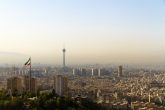December 06, 2018
Give Saudi Arabia a Take It or Leave It Deal
President Donald Trump released a statement on November 20 in which he supported Saudi Arabia’s Crown Prince Mohammed bin Salman’s (MBS) claim that he had nothing to do with the murder of Jamal Khashoggi, directly contradicting a leaked CIA assessment that MBS ordered the killing. Vowing to stand with U.S. ally Saudi Arabia, Trump cited lucrative foreign military sales and Iranian aggression among the reasons for his support. Saudi Arabia’s disastrous war in Yemen has been met with a similar absence of criticism from the administration. However, the United States should do more than wring its hands about this war that has killed thousands and brought many more to the brink of starvation, by applying pressure on Saudi Arabia to change its course. The question is how?
Walking away from supporting the Saudi-led war in Yemen and ending U.S. mid-air refueling might give Washington the moral high ground, but it will do little to stop the killing. The Saudis view the threat in Yemen as crucial to their interests, so U.S. pressure to end the war altogether will fall short of causing real change. To the Saudis, the threat of Iran establishing a foothold on their southern border is much more vital to their interests than procuring U.S. weapons. Rather than walk away from Yemen, they will buy Russian bombs or use less sophisticated weapons and tactics that will kill even more civilians. Americans will have washed our hands of a morally unacceptable situation, but civilian deaths and the threat of famine will actually get worse, and the world will look on and do nothing.
The only approach worse than walking away is what the United States is currently doing—giving the Saudis a blank check. Supporting the Saudis with intelligence, refueling, weaponry and minimal guidance on protecting civilians has failed at preventing civilian casualties. This policy was started by the Obama administration and put on steroids in the age of Trump. The theory was that by remaining engaged and involved, the United States could exercise some influence on Saudi Arabia and drive more responsible targeting and decision-making in Riyadh.
Read the full article in The National Interest.
More from CNAS
-
The Axis of Upheaval
The West has been too quick to dismiss the coordination among China, Iran, North Korea, and Russia....
By Andrea Kendall-Taylor & Richard Fontaine
-
Iran ‘minimizing impact’ of Israeli strike: analyst
ranian media reported explosions, but an Iranian official told Reuters those were caused by air defense systems. State media said three drones over the central city of Isfahan...
By Jonathan Lord
-
Proxy battles: Iraq, Iran, and the turmoil in the Middle East
Since Hamas’s attacks sparked the war in Gaza on 7 October 2023, a dangerous cycle of escalation has played out across the Middle East. Iran and its proxies – such as the Hout...
By Hamzeh Hadad
-
Blaise Misztal and Jonathan Lord on U.S. Ceasefire Push in Israel-Hamas War
Blaise Misztal of the Jewish Institute for National Security of America and Jonathan Lord from the Center for a New American Security talked about the new push by the U.S. for...
By Jonathan Lord




